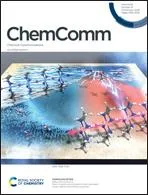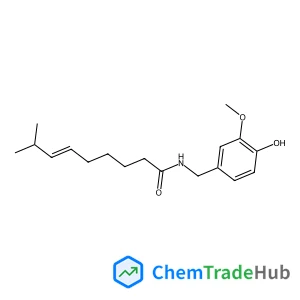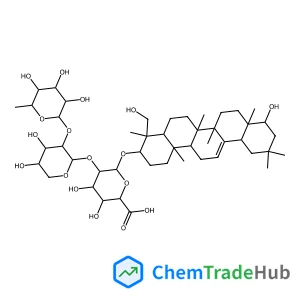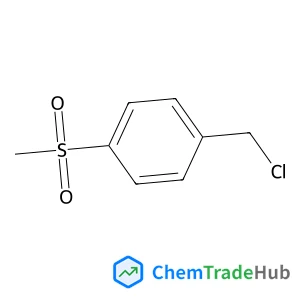Boronic acid liposomes for cellular delivery and content release driven by carbohydrate binding‡
文献情報
Xiaoyu Zhang, Daiane S. Alves, Jinchao Lou, Shelby D. Hill, Francisco N. Barrera, Michael D. Best
Boronic acid liposomes enable triggered content release and cell delivery driven by carbohydrate binding. Dye release assays using hydrophilic and hydrophobic fluorophores validate dose-dependent release upon carbohydrate treatment. Microscopy results indicate dramatic enhancements in cell delivery, showcasing the prospects of boronic acid lipids for drug delivery.
おすすめジャーナル
関連文献
IF 6.843
Ultra-thin NiFeSe nanosheets as a highly efficient bifunctional electrocatalyst for overall water splittingIF 6.367
Chemoproteomics-based target profiling of sinomenine reveals multiple protein regulators of inflammationIF 6.222
Permselective ion electrosorption of subnanometer pores at high molar strength enables capacitive deionization of saline waterIF 6.367
A model-based comparison of Ru and Ni catalysts for the Sabatier reactionIF 6.367
Back coverIF 6.222
Engineering of electrodeposited binder-free organic-nickel hydroxide based nanohybrids for energy storage and electrocatalytic alkaline water splittingIF 6.367
CaMoO4 nanosheet arrays for efficient and durable water oxidation electrocatalysis under alkaline conditionsIF 6.222
Heterogeneous toroidal spiral particles for islet encapsulationIF 6.843
Catalytic depolymerization of Kraft lignin to produce liquid fuels via Ni–Sn metal oxide catalystsIF 6.367
掲載誌
Chemical Communications

ChemComm publishes urgent research which is of outstanding significance and interest to experts in the field, while also appealing to the journal’s broad chemistry readership. Our communication format is ideally suited to short, urgent studies that are of such importance that they require accelerated publication. Our scope covers all topics in chemistry, and research at the interface of chemistry and other disciplines (such as materials science, nanoscience, physics, engineering and biology) where there is a significant novelty in the chemistry aspects. Major topic areas covered include: Analytical Chemistry Catalysis Chemical Biology and medicinal chemistry Computational Chemistry and Machine Learning Energy and sustainable chemistry Environmental Chemistry Green Chemistry Inorganic Chemistry Materials Chemistry Nanoscience Organic Chemistry Physical Chemistry Polymer Chemistry Supramolecular Chemistry
おすすめサプライヤー
 フランスほう砂
フランスほう砂 国際ビジネスシステムズ GmbH
国際ビジネスシステムズ GmbH Systec GmbH&Co.KG
Systec GmbH&Co.KG 東莞市創昇機械設備有限公司
東莞市創昇機械設備有限公司 深圳康宇达発光材料有限公司
深圳康宇达発光材料有限公司 ApiniLabs株式会社
ApiniLabs株式会社 ズッ إليンフロンティア化学科技有限公司
ズッ إليンフロンティア化学科技有限公司 鎧碩化学工業販売有限公司
鎧碩化学工業販売有限公司 QUANCOM Informationssysteme GmbH
QUANCOM Informationssysteme GmbH ニティカ化学
ニティカ化学














